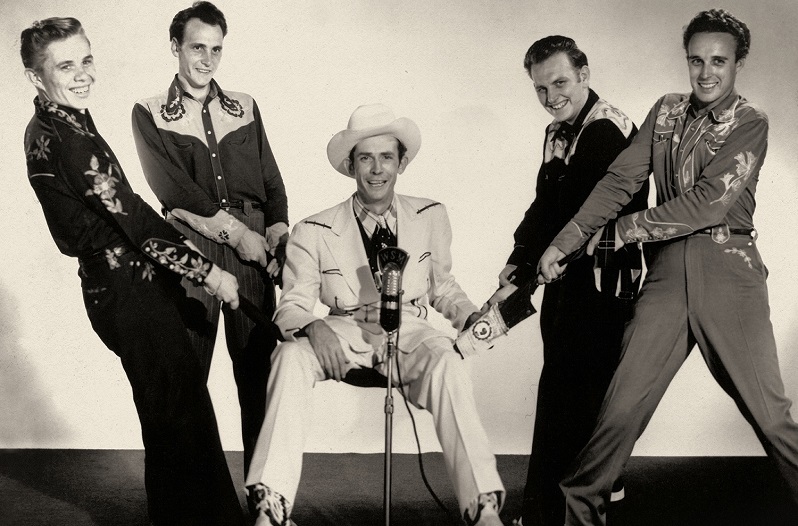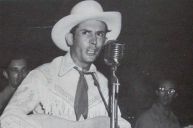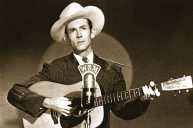Although Hank Williams didn't write and never professionally recorded "Tramp on the Street," the plea for Christ-like charity ranks among the most moving and meaningful songs from his Health & Happiness radio show.
The song can be traced back to an 1877 poem titled "Only a Tramp," penned by Dr. Addison Crabtre and posing the same question later asked by Williams and dozens of others: would Jesus get better treatment today than the homeless in your hometown?
Grady and Hazel Cole, a married couple from Northwest Georgia, turned a 60-year-old poem into a Depression-era period piece, upping the spiritual stakes by swapping Crabtre's nameless beggar for Lazarus from the New Testament. There's no telling when the Cole's, a prolific songwriting duo responsible for The Louvin Brothers deep cut "What a Change One Day Can Make," wrote the song, but they definitely recorded it for Bluebird on Aug. 24, 1939.
While other early versions are informed by the Cole family's oddly peppy, accordion-driven arrangement, Williams' live recording from Oct. 1949 made a great song greater, scrapping the Cole's waltz and replacing it with a country-blues feel that better suits Grady and Hazel's heart-wrenching lyrics.
The song's legacy extends well beyond Williams' radio career. Country Music Hall of Famer Bill Carlisle released the only top 15 version in 1948, prompting covers by The Maddox Brothers and Rose, Wilma Lee and Stoney Cooper and others. Later on, its themes made it a good fit for bluegrass and gospel artists, including Earl Scruggs and The Lewis Family.
"Tramp's" biggest touchstone moment not involving Williams came when a 1961 recording by song collector Ramblin' Jack Elliott introduced a modern-day morality tale to a who's-who of folk revivalists, namely Joan Baez, The Staples Singers and Peter, Paul and Mary.
The song's influence since the folk revival's heyday has faded beyond Williams devotees, despite an irreverent '70s rendition by Kinky Friedman, a performance in the '90s on The Statler Brothers Show and a 21st century update by Americana artist Drunken Prayer.
Read More: The Lasting Impact of Hank Williams' 'Lost Highway'
In June 2019, BMG included Williams' lone recording of the song from Oct. 1949 as part of 49-song archival release The Complete Health & Happiness Recordings.
This article was originally published in June 2019.
Now Watch: 10 Legendary Instruments of Country Music




